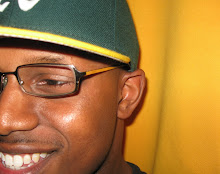Student Health Clinic
The health clinic rotation was very beneficial in the sense that it allowed me to put my history-taking skills to test. My time was spent checking-in patients, most of whom were students, and taking vitals. From there, I would place them in designated doctor’s office depending on what they were there for; for example if they were there for female-related issues, physical examinations, blood work, or a simple check up.
What I liked from the very first moment is the nurses gave me an informal orientation about what to expect and what things I can do, and cannot do, and where to go if I had any concerns. There was no underestimation or condescending questioning about my abilities to perform, only expectations and offerings to help if needed. From that moment, I knew this would be a fantastic rotation. Everyone in the health clinic was fun to be around from the doctors, the nurses, office staff, and even the nursing students, unlike some other rotations where everyone seems to want to ‘one-up’ each other, which creates less cooperation and more competition. Here, no one had anything to prove, and I liked that.
Having McMichael there also added to the easiness, because, simply by chance, he dealt with more patients that required lab testing, blood work, etc. done, so when I would get a case, I could just ask him instead of asking the nurses. I like environments where we can use each other as resources instead of always asking the instructor/CI first. And besides, the nurses picked on him all the time haha
There were a variety of conditions I saw from a broken foot, to prescription refills, to what was the biggest abscess I have ever seen (picture or person) on a young woman’s axillary fold. Contrary to what most believe, I did not have one patient there for STD/STI related-reasons, unless they just were not comfortable telling that to me, in the two weeks I was there. The easiest patients to take history’s on were those who suffered orthopedic related injuries, which there were quite a few, and I gradually learned to ask really good questions with the cold/flu/sore-throat population. The hardest patients to take a history on were the three individuals who wanted consultation about the depressive symptoms they were experiencing. Being that is a sensitive subject, I tried to make those ones as quick as possible for the patient and myself.
Another unique aspect of this rotation was the fact I lived on-campus, and there were a good number of times when patients recognized me, and I recognized them. Being a Community Assistant in the residence halls, the most awkward moment came when one of my residents came in, and I tried to avoid bringing it up during the history, but she brought it up so I played along. I was just happy it didn’t make her uncomfortable.
This rotation was very socially and educationally pleasing. The time spent here was so long but it seemed brief because of the fun and interesting stuff to do. I am sure the women in the front office did have something to do with that, also.
Monday, April 13, 2009
Subscribe to:
Post Comments (Atom)

No comments:
Post a Comment